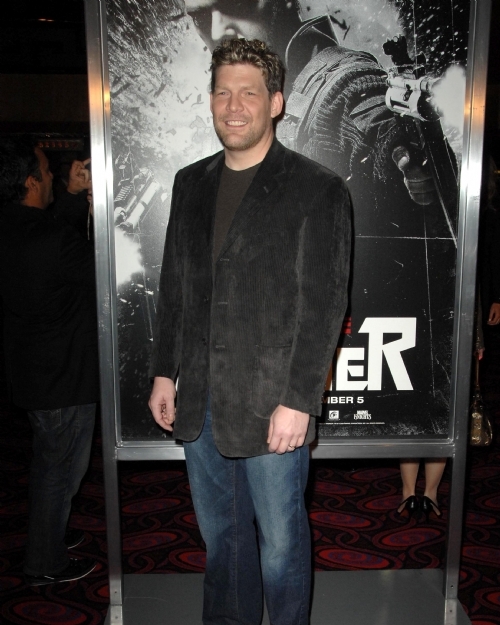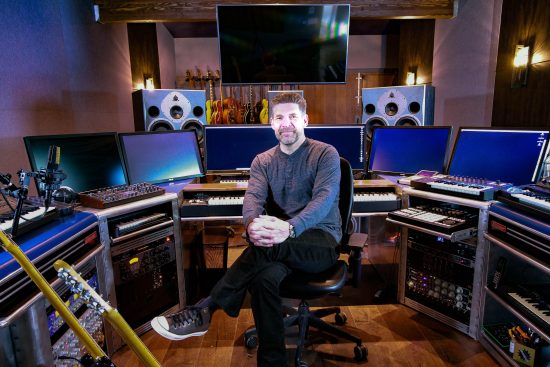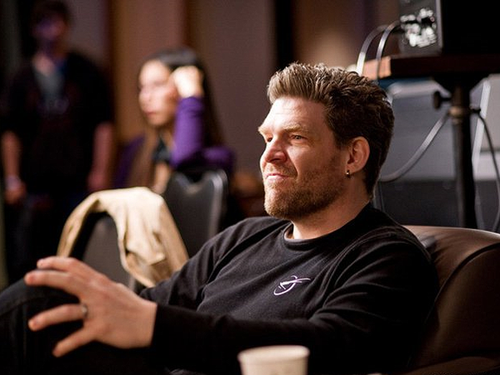We spoke to Michael Wandmacher about his diverse career and about his recent project, Voice from the Stone.
Michael Wandmacher is an American composer of film, television, and video games. His body of work comprises mostly horror and suspense films, such as Punisher: War Zone, My Bloody Valentine, Piranha 3D, Underworld: Blood Wars, and the recent supernatural thriller Voice from the Stone starring Emilia Clarke. Wandmacher has also worked on ABC’s period sitcom The Goldbergs since 2013, and scored the critically acclaimed action role-playing game Bloodborne in 2015.
Big Picture: How did you first get involved with musical composition?
Wandmacher: I’ve been playing music since I was a kid. My journey started playing in bands, mainly cover bands, and at the same time I started experimenting with electronic music using sequencers and things like that. This was back in the mid ‘80s when that was just coming into vogue. I had a job at an advertising agency and was moonlighting writing news music and infomercials while I was learning how to score pictures. I was in Minneapolis at the time; through people that I’d met I was able to get some work doing short films and realised that this was something I’d really like to do. When I hit a wall in Minneapolis, all the people that I knew in California told me that I had to move if I wanted to keep composing. So, I packed everything in a truck and just kept driving.
Who would you say your favourite musicians were and which musical composers inspire your own work?
In terms of recording artists, Nine Inch Nails are a huge inspiration and influence for me. Composers, I’d say the big three were John Williams, Alan Silvesrti, and Danny Elfman. Also, people like Thomas Newman and Jerry Goldsmith – the list goes on and on.

Michael, at the premiere of Punisher: War Zone
A lot of your work consists of genre pieces, such as thriller and horror films. What is it that appeals to you about these films artistically?
I’m a big fan of science fiction, horror, and anything to do with comic books. It’s fun because those kinds of genres are wide open; they allow you to try a lot of different things and be experimental and not feel tethered to one particular approach. You can try orchestral techniques or hybrid, electronic, organic, ambient score. You can mash everything together and, from a creative standpoint, it’s very rewarding because you never know what you’re going to end up with. Working in other genres like drama or comedy, the focus on the music tends to be narrower.
Do you find that there is recurring musical themes or motifs in horror-related scores?
They’re all different. Usually, the director has a pretty clear idea of what they want. It can sometimes be obtuse and atonal, and other times its more traditional and theme-driven. It can also be interesting to work with music in relation to the film’s characters – for example, when I worked on the remake of My Bloody Valentine, the director wanted subtle musical nods to the killer’s identity throughout the film. That was a very robust, classic slasher-type score – those are a lot of fun to do.
You also work within video game composition. What would you say were the main differences between scoring a film, TV series, or video game?
They’re the same in the sense that the game developers want to create themes and a specific musical environment, but the ways in which the music is constructed is different. Mainly because, except for the fixed cinematic cutscenes, when the player is actually in the gameplay areas, most of that music is created by using loops of score. You’ll write maybe two minutes of music and then it’ll loop to create a continuous vat of music for any place in the game. The tricky part of that is that you have to consider, which isn’t the case in TV or film, that the player might be hearing this music 100 or 200 times. If the fabric of the music is too repetitive, and the player is hearing this over and over, it can be very frustrating. You have to figure out what the balance will be between thematic or environmental pieces and how the music is structured for the game. You also have to maintain the mood of the piece without it being annoying or getting in the way – keeping the game alive without getting in the way. It’s like a dance. In the case of Bloodborne, the boss characters had their own themes and musical direction, which still had to tie into the overall fabric of the game.

What have been some of the most artistically rewarding projects you’ve worked on?
Voice from the Stone was really rewarding for me because it was so different to anything I’d worked on previously. I do a lot of large scale, aggressive, dark scores. Those are very challenging and they’re a lot of work because of the scale and also, in genre films, there’s a lot of music. With Voice from the Stone, it was a 180 from that. I used an orchestra that was chamber sized – very small. A lot of the score used solo instruments so there were long passages in the score where it’s just a cello or just a piano with nothing else to rely on, no backing of huge sonic energy that these other scores have with huge brass sections and electronics. You can assault the listener with that – there are lots of things to move around with. With Voice, however, in terms of changing up the colour and the texture of the music, it was very different. The melodies and orchestrations had to be very precise and very well thought out – it was a completely different way of thinking.
What would your dream project be?
I’d love to do a superhero film. Something that has huge storytelling scope – maybe a science fiction film with an ambient, electronic, evocative score. I’d also love to do a horror film scored entirely using human voices. I don’t think anyone else has ever done that before.
